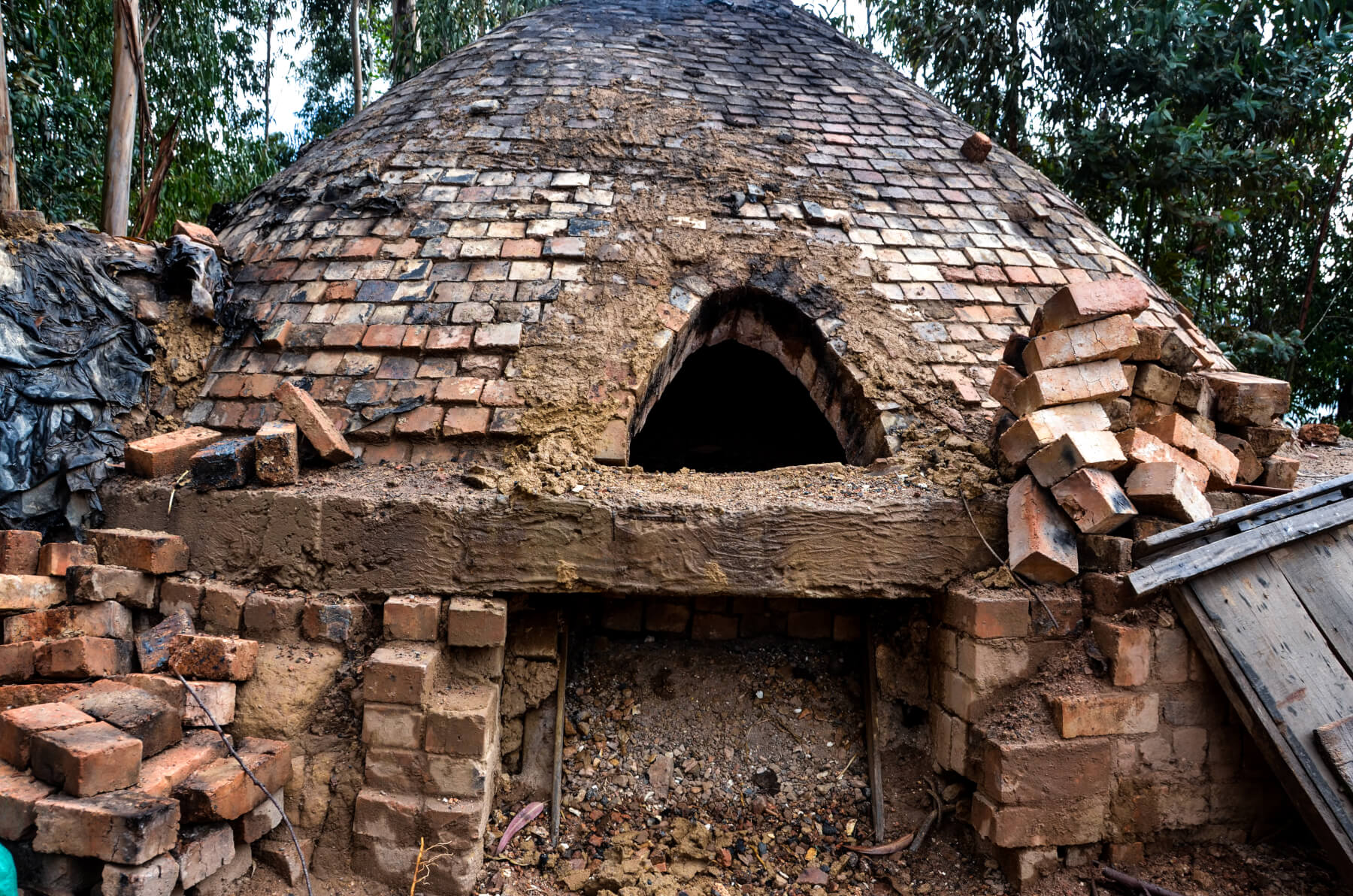Community
Story
The pottery tradition in Boyacá, Colombia
With complicit and mischievious laughs Sandra Patricia Molano Gómez, 37 years old, and Libia Rosemery Vargas, 41, welcomed me. Their expressions were courageous and serene. These two women, with their bare hands, have developed one of humanity’s oldest jobs – pottery.
[1] The chircales
The Pantanitos Alto village in Boyacá, Colombia is a 1 hour drive away from the Sogamoso municipality. Upon entering, the economic importance of pottery is very visible. Everywhere you look you see the ovens’ smoke rising between the mountains. These ovens are made of brick and are found in the chircales, where miners work making bricks.
Previously brickmaking was more artisanal, “they used their feet to step on mud and horses were used to make the bricks,” explained Sandra. Currently, the trade is more technical, so machines are used in order to help potters do their daily work.
In order to create the brick, “two types of clay and sand” are mixed, says Libya. This mix is soaked and allowed to set, then poured into the molds and the bricks are cut. Once they are ready, they are baked. Libya says it can take “up to two days to fill up the oven.” Subsequently the burning is done and after cooling the brick “is ready to be sold,” says Sandra.
[1] site where miners work making bricks


Their legacy
The two grew up surrounded by clay and mud. Sandra says that her family thought that studying wouldn’t be beneficial for her, so she began making bricks at 9 years old and has not stopped since. Like Sandra, Libya also comes from a family of pottery. Her grandparents, parents, and other family members have always worked either directly or indirectly in the mining sector.
This job has been their economic livelihood for many years and they are very grateful and proud to be mining women. Sandra says that “this is a very beautiful profession, because you can still take care of your children and family. If you wake up feeling lazy, then you don’t work all day. ” She adds, “I love this job very much because it is what I have known my whole life.”
Despite their tradition and roots in pottery, Sandra and Libya would like their children to follow different steps. “We tell our children they must value studying, so it is a bit hard. You know how it goes, ”says Sandra.
The Workday: Everyday is different
They live in Pantanitos Alto, a pottery tradition community. “We wake up around 5 in the morning,” says Libya. Her son begins his classes at 6:45 a.m., so she wakes up early to make his breakfast make sure he leaves the house at 6 to school. Then she gets ready and prepares for the workday.
Every day is very different since it depends on what work needs to be done and which step of brick construction you are in. Sandra explains that cutting the brick, filling the oven, or loading the truck with the bricks can take a few days. “We live one day at a time,” Libya adds.


Empowered and committed women
Libya and Sandra are part of the Association of Women Mining Entrepreneurs (AMME) in Boyacá, Colombia. Along with 63 other women they created AMME, with the support of the Alliance for Responsible Mining (ARM) and financing from the Canadian Fund for Local Initiatives (CFLI) under the Proudly Mining Project, which aims to empower to mining women in the region and promote gender equality in the artisanal and small-scale mining sector.
They expressed their gratefulness for the support provided. Sandra said, “ARM has taught us several things. The trainings have helped me with my self-esteem. ” Thanks to all the training that the women of Boyacá have received, they have changed their way of thinking and viewing things. “I stopped doing many things in order to start working. And the training has helped me realize all of the things I can do without complicating my life,” says Libya.
.
